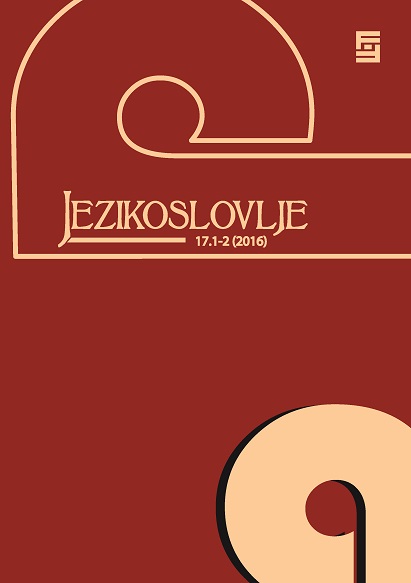Anomalous use of definiteness and gender in some types of noun phrases in Bulgarian
Anomalous use of definiteness and gender in some types of noun phrases in Bulgarian
Author(s): Valentin GeševSubject(s): Theoretical Linguistics, Morphology, Syntax, Semantics, Pragmatics, Comparative Linguistics, South Slavic Languages
Published by: Filozofski fakultet, Sveučilište Josipa Jurja Strossmayera, Osijek
Keywords: definiteness; gender; Modern Bulgarian; hypocoristic names; pragmatic choice; grammar rules; Balkan linguistic features;
Summary/Abstract: The paper considers the anomalous use of definiteness and gender in Bulgarian noun phrases containing hypocoristic names, nicknames or sometimes even legal personal names. Proper names of people, being semantically definite, usually do not take the definite article in Bulgarian. But in the cases considered it is just the opposite – in informal conversation, in fiction or in ironic statements the use of a definite article is either obligatory or facultative depending on the formal and semantic features of the names. The factors to trigger the anomalous use described may be the female sex of the designee, the less typical ending of the noun, its being grammatically neuter or its inclusion in an attributive phrase. Thus the female legal personal names (e.g. Marija, Elena) may take a definite article on some special occasions (Marijata, Elenata) but male legal personal names (e.g. Boris) cannot. Male legal or hypocoristic names ending in -o (Stojko, Borko<Boris) never take the definite article, male names ending in -e may or may not take the definite article (Bore/Boreto<Boris) but female names ending in -e always take the definite article in colloquial Bulgarian (Marčeto<Marija, Lenčeto<Elena). What is more, their attributes are in the neuter and not in the feminine (hubavoto Lenče<hubavata Elena). Male hypocoristic names ending in -a, even those derived from family names, always take the definite article (Penata<Penev, Vucata<Vucov) but their attributes are in the masculine. Corresponding forms without an article (Bore, Marče, Lenče, Pena, Vuca) are used as vocatives or sometimes as predicatives. The phenomenon is stylistically marked which means that the choice of such noun phrases is pragmatic, but the rules which determine the use of definiteness and gender in them are grammatical. These are particular rules which operate in a minority of situations and contradict the general rules operating in the majority of contexts. Some of them are rigid but others are optional and introduce additional nuances into the statement. The phenomenon can be interpreted as a Balkan linguistic feature partially mani-fested in Bulgarian. Its occurrence in folklore texts might qualify it as rela-tively old.
Journal: Jezikoslovlje
- Issue Year: XVII/2016
- Issue No: 1-2
- Page Range: 65-87
- Page Count: 23
- Language: English

